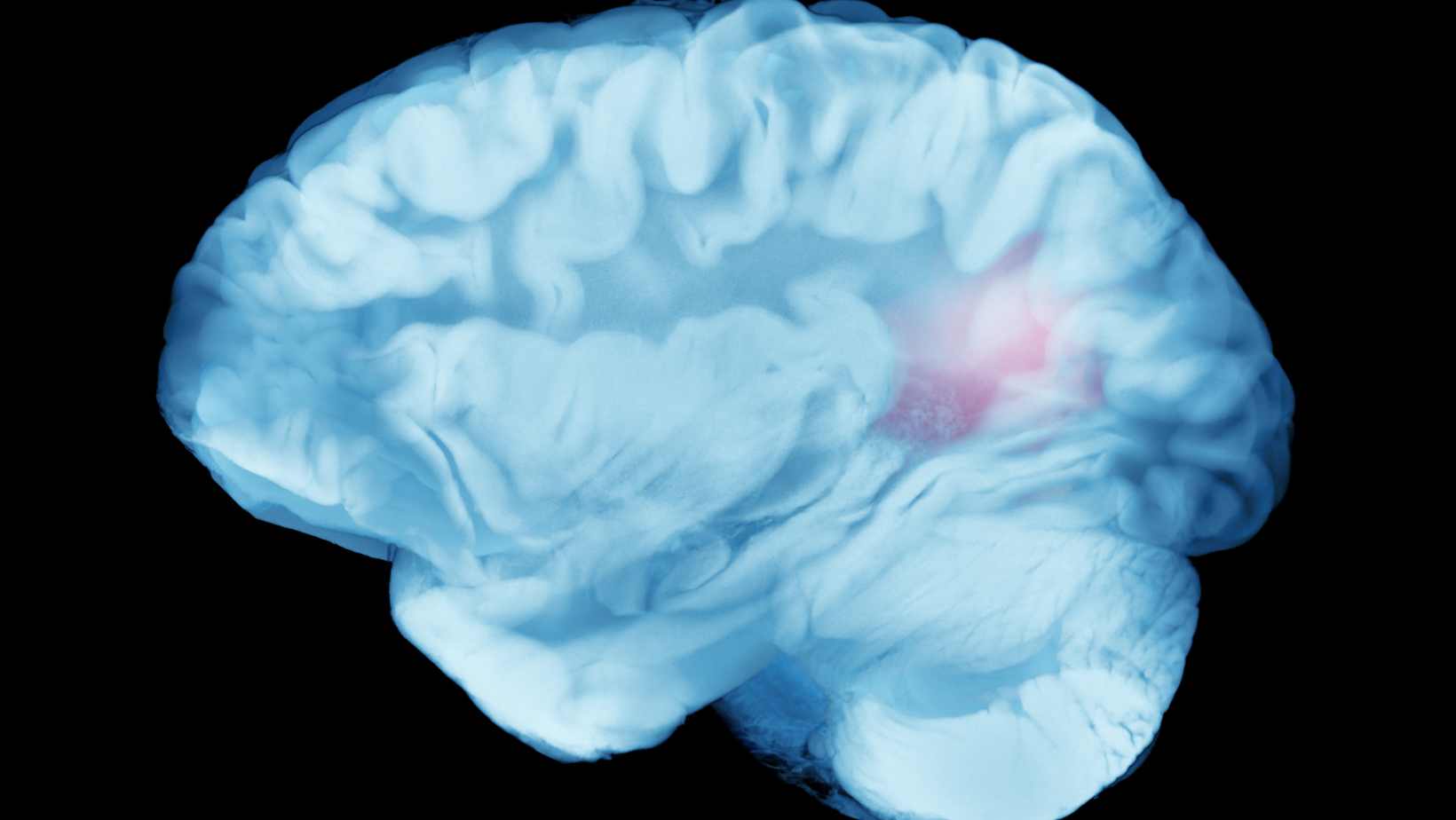Have you ever wondered what it feels like to wake up one day and find it hard to move, speak, or even remember your name? For millions, this is the daily reality of living with a nervous system disability. These are not just medical terms; they are life-altering challenges that affect people physically, mentally, and emotionally.
In this blog, we will break down what a nervous system disability is, how it changes people’s lives, and, most importantly, how we can treat and support those affected. Written by Dr. Chandril Chugh, a US-trained, board-certified neurologist, this article aims to educate, empower, and give hope.
Table of Contents
ToggleTreating Patients with Nervous System Disability!!
The human body has hundreds of nerves and billions of neurons present in it that form a complex network to carry out all the functions in the body. The nervous system is responsible for carrying out several functions in our body, transmitting signals to various parts of the body, thus making coordination between the numerous organ systems in humans possible. The nervous system is like a roadway of thousands of nerves connected to the various parts of the body to carry out daily tasks. Thus, the nervous system is paramount for the human body to function. A healthy and strong nervous system is essential for one to act promptly and be able to think properly.
What is a Nervous System Disability?
Nervous system disability refers to any medical condition that affects how the brain, spinal cord, or nerves function. These issues interfere with messages traveling through the nervous system, leading to physical, mental, and emotional problems.
Living with a nervous system disability isn’t just about the symptoms. It’s about the daily struggles of walking, eating, working, or communicating. It is important that one speak to a neurologist or talk to a neurologist online to gain more insights on nerve disability.
What are the most common types of nervous system disabilities?
Several conditions fall under the umbrella of nervous system disability:
- Cerebral Palsy: Affects movement and posture due to early brain damage.
- Multiple Sclerosis (MS): Immune system attacks the protective cover of nerves.
- Parkinson’s Disease: Causes tremors, stiffness, and trouble with balance.
- Epilepsy: Leads to seizures caused by abnormal brain activity.
- Amyotrophic Lateral Sclerosis (ALS): Progressive muscle weakening.
- Stroke-related Conditions: Sudden brain damage that impairs movement or speech.
ICD-10 Codes classify these disabilities under codes like:
| Condition | ICD-10 Code |
|---|---|
| Epilepsy | G40 |
| Parkinson’s | G20 |
| MS | G35 |
| ALS | G12.21 |
| Stroke | I63, I64 |
| Cerebral Palsy | G80 |
How do these conditions impact physical, cognitive, and emotional health?
The effects of nervous system disability can touch every part of a person’s life.
- Physical: Trouble walking, tremors, poor coordination
- Cognitive: Memory issues, slow thinking, learning difficulties
- Emotional: Depression, anxiety, mood swings
According to the World Health Organization (WHO), more than 1 billion people live with some form of disability, and 15% of them face a neurological or cognitive issue.
Nervous System Disability Diagnosis
A Healthy nervous system provides an ideal equilibrium between the activation of the parasympathetic and the activation of the sympathetic. The brain and the nervous system are interlinked with each other. The brain is the central machine that regulates all activities of the body.
The rest of the nervous system is like a network that transmits signals back and forth from the brain to other areas of the body. Any harm caused to the nerves or the brain can lead to disability or nerve damage. Several factors can cause damage to the brain or the nervous system.
Accidents, complications during the birth or the pregnancy, genetics, etc., are some of them. In such cases, it is important that one seek the appropriate treatment of disability from a top neuro physician in Patna.
What Are the Best Evidence-Based Approaches to Treat Nervous System Disability?
There isn’t a one-size-fits-all answer. Treating nervous system disability needs a mix of medication, therapies, and lifestyle changes.
What role does medication play in symptom management?
Medication helps manage the symptoms but doesn’t always cure the root problem.
- Anticonvulsants: Help control seizures
- Muscle Relaxants: Ease muscle stiffness
- Dopamine Agonists: Used in Parkinson’s for movement control
One study from Mayo Clinic showed a 40% improvement in motor symptoms with early medication in Parkinson’s.
How effective are physical and occupational therapies?
These therapies help patients regain daily function and reduce dependency.
- Improve balance, strength, and posture
- Relearn basic tasks like dressing or eating
- Encourage independent living
According to Cochrane Reviews, combining occupational therapy with physical therapy improves motor skills by up to 65%.
Can cognitive and behavioral therapies improve neurological function?
Yes, these therapies help with thinking, emotions, and communication.
- Cognitive Behavioral Therapy (CBT): Manages mood and thoughts
- Neurofeedback: Trains brain to improve function
- Speech Therapy: Improves talking and swallowing
What is the importance of integrative or holistic approaches?
Healing isn’t only physical. Mind and body must align.
- Yoga: Increases flexibility and reduces stress
- Meditation: Calms the mind and controls emotions
- Nutrition: Supports nerve health with vitamins and antioxidants
- Assistive Tech: Walkers, talking apps, smart home tools
Table: Treatment Modalities vs Effectiveness
| Treatment Type | Effectiveness (%) | Comments |
| Medication | 30-60% | Depends on condition & dosage |
| Physical Therapy | 50-70% | Aids mobility and strength |
| Cognitive Therapy | 40-60% | Helps with memory, mood |
| Holistic Methods | 20-40% | Supports overall well-being |
Here are a few ways you can help in treating the patient with Nervous system disability
Monitor their diet.
According to the top neurologist in Gwalior, food is important for the treatment of nervous system disability. Here are a few foods that can help alleviate the symptoms.
- Eggs – A regular intake of eggs makes the choline in eggs make acetylcholine. It’s a neurotransmitter that is essential for communication and improving memory among the brain cells. A study also shows that it enhances better performance in memory tests.
- Green leafy vegetables- Green leafy vegetables are said to be healthy when we were kids, but somewhere down the line we always forget to add greens to our diet. Greens are powerful food to soothe your nerves. They are rich in vitamin B complex, vitamin C, vitamin E, and magnesium.
- Fish – Fish has Omega 3 fatty acids. People who have a deficiency in fatty acids may suffer nerve damage. Myelin sheaths protect nerves that are made of fatty acid. Thus, the deficiency can be cured by omega-3 fatty acids, which are present in fish, and it also helps in the healing of the nervous system.
For a more personalized diet, seek help from a neurologist online chat.
Yoga
This can be a great method to improve your body movement and memory. It calms your mind and reduces stress. Yoga asanas need focus and concentration to perform, which helps in the sympathetic nervous system. As the nervous system controls the moment and the body coordination, the famous neurologist in Patna can guide you with the treatment that is trusted for any neurological disorders. Padmasana, Sarvangasana, Paschimottanasana, Padahastasana, Halasana, etc., are some good asanas for healing.
Engage them in activities
It is important that the brain is active and no harm is caused to it. Doctors often suggest brain exercises to patients to help them steer clear of neurological disorders. Brain exercises are very helpful in improving concentration. There are several brain exercises to improve concentration. A simple exercise like reading a book for 30 minutes, or listening to music, playing chess, etc., can help in improving concentration level.
How Can Multidisciplinary Care Improve Outcomes for Patients?
When experts from different fields work together, treatment becomes more effective and personalized.
Who should be part of the treatment team?
- Neurologists: Diagnose and guide medical treatment
- Physiotherapists: Improve movement and function
- Psychologists: Handle emotional health
- Speech Therapists: Aid in communication
- Nutritionists: Plan nerve-friendly diets
What role do caregivers and family members play?
- Assist with daily routines like bathing or medication
- Provide emotional support during difficult times
- Help implement therapy exercises at home
How can communication and empathy impact recovery?
- Patients heal better when they feel understood
- Trust builds when doctors and families listen
- Empathy reduces stress and boosts motivation
- Contact a neurologist
When you are taking care of someone with Nervous system disability, it is important that they get the appropriate medication from an expert. One should have regular checkups from a neurologist for monitoring the nerve disability. Consult the best neurologist in Faridabad or the top neurologist in Delhi NCR for treating a disabled person.
One should seek medical help from a neurologist, Dr. Chandril Chugh or prefer booking an online neurologist consultation for treating such complications.
You can also find him as a neurologist in Punjab, the best neurologist in Faridabad or brain specialist doctor in Faridabad , a top neurologist in Jaipur or the best neurologist in Saket, best neurologist in South delhi, a neurologist in Agra, mind doctor in Delhi, top neuro physician in Patna and a top neurologist in Gwalior, famous neurologist in Gwalior.
He is also amongst the top 5 neurologist in Patna and top 10 neurologist in Delhi,ncr, and is also famous for his long distance senior care services.

Dr Chandril Chugh
Dr. Chandril Chugh, a renowned American Board-Certified Neurologist, is just a click away. With years of global experience, he offers trusted neurological guidance online.
→ Book a consultation to discover which remedies suit your needs best.




